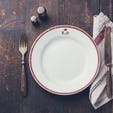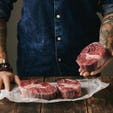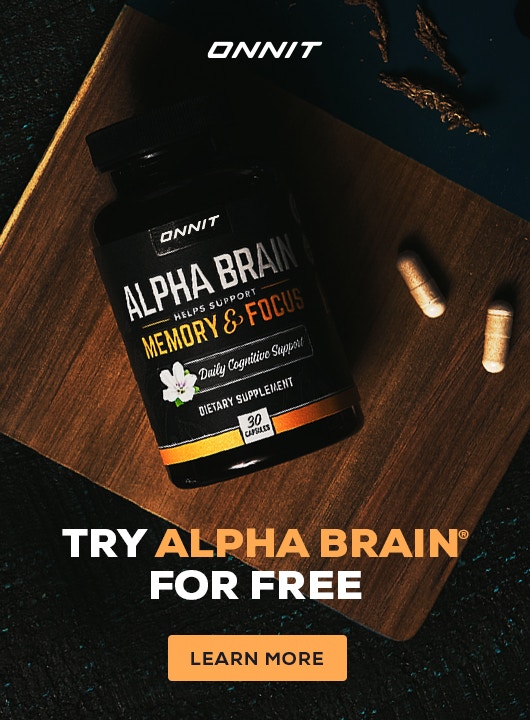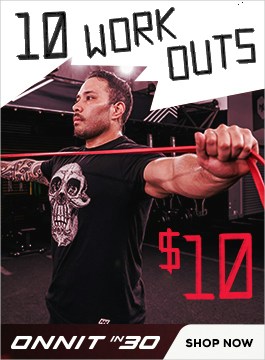For many of us, looking back on our lives can leave us shaking our heads. And looking ahead to the future may make us want to run and hide under the bed. So how do you calm down and start making a plan to be healthier, more successful, and happy?
As the cliché goes, you take it one day at a time.
It’s really that simple. If you just focus on getting one day right (maybe today), chances are you’ll be able to do it again (maybe tomorrow). String a few good days together, and before you know it, you’re having a pretty good week, month, year… life.
Own The Day, Own Your Life, by Onnit’s founder, Aubrey Marcus, shows you how to do it with strategies Marcus uses himself to optimize each day. We talked with the author—whose latest work has already made the Amazon.com best-sellers list—to give you a sneak preview.
Owning The Day: A Conversation With Aubrey Marcus
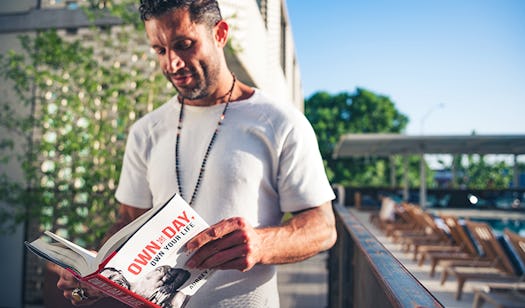
Onnit: Your book is about practices that allow people to be successful every day. Can you show us what they look like on a normal day in your life?
Aubrey Marcus: I generally go to bed around 1:00 a.m. and wake up at 8 a.m. I know both those times are a little later than most people but that seems to be the pattern that works for me.
I focus first on hydration, getting sunlight, and doing some movement, just as I describe in the book. In every shower, I turn that nozzle to cold and I’m doing Wim Hof breaths. If I have breakfast at all, I keep it super keto—either a shake or bone broth with an avocado. I avoid sugar and caffeine early in the day. If I have those things too early, before my body naturally wakes up, I’m dragging all day.
After a few hours of work, I eat a weird lunch [see below]. Then, in the afternoon, I take Alpha BRAIN® before my biggest meetings or recording a podcast. After that, I work out, connect with loved ones and family, play my musical instruments, have great sex, journal, and get as much sleep as I can.
But you didn’t adopt all these habits overnight. How did you begin to transition to the streamlined schedule you have now?
The key was really just having a process. I try to know what the day’s objectives need to be the night before. I don’t like surprises—getting hit with things I wasn’t prepared for. I’m flexible and open to explore that stuff if it comes up, but typically I like to know what my day is going to be ahead of time.
There’s great freedom in knowing what you’re doing every day. You don’t have to think about it. There’s no more, “What should I do this morning?” I know what I should do. I should wake up, drink water, get in the pool and swim laps, and get some sunlight. Making decisions all day gives you decision fatigue, so having little practices like this that are planned in advance structures the day without me having to stress about it.
Working out is obviously not something you skip—we’ve all seen you in the Onnit Gym every day. What’s your training like?
In the gym, I’m pretty intuitive. I do what I feel I need that day. But I’m almost always going to do some kind of sprint. It may be on a ski erg, a heavy bag, or with battle ropes, but I’ll do some kind of all-out, max exertion, going until I just can’t go anymore. Whenever I do that it seems to reset me for the rest of the day.
Lately, I’ve also been trying to move more in general. Walk more, swim laps in the pool. I’ll put on music and dance and do squats and lunges. I try to extend my activity and movement throughout the day so I’m not just doing it in the gym.
Many people complain of having low energy, and that’s why they don’t work out or get other things done. What is the worst energy drains?
One is playing metabolic ping pong with sugar and carbs. Having your blood sugar rise and crash, back and forth, all day is exhausting. When your body is fighting off anti-nutrients, or things that are really bad for you, like alcohol or too many chemicals, that can wear you out too.
Another one that people don’t often think of is simply not moving enough. That creates a negative feedback loop. You think, “I’m tired so I don’t want to move.” And then you find out that you’re more tired because you didn’t move. But if you went to the gym you’d feel better. Beyond that, mindset practices and letting go of stuff that’s bothering you is re-energizing. Try this: take six, slow deep breaths—in through your nose and out through your mouth—and see how you feel. I promise you’ll feel a difference, and research shows it works.
Earlier, you mentioned having a “weird” lunch. What does that mean?
[Laughs] I think that the “breakfast is the most import meal of the day” bullshit was just a great ad slogan. With your body already sleeping through the night, it makes more sense to me to skip breakfast and give yourself a little more time to recover. You’ll think more clearly as-as result. By the time lunch comes around, you’re ready to eat and should eat as diverse a selection of foods as you can.Most people consume less than 20 different types of food. It’s chicken, wheat, dairy, and so on over and over again. You should push the boundaries and aim for a wide array of foods, like different vegetables and fermented foods—things that may seem weird because they’re not lunchtime staples. A lot of times I’ll have Ethiopian food. There’s a spice they use called berbere that has 12 other spices already in it, like cayenne, fenugreek, paprika, and turmeric. So, if you have, say, collard greens spiced with berbere, that’s like having a 13-ingredient side dish. You need to try more spices than just salt. Expand your palate, and make sure you’re sourcing your food well. Beef should be grass-fed, fish should be wild-caught, and dairy should be organic.
You’ve done a lot of research on flow states—being “in the zone.” How do we tap into one fast when we need to?
The flow happens in the present. So you have to get your mind into the present moment one way or another. It’s helpful when you have some incentive to do that or a practice that helps you get there. When I give a talk, I get into a flow state very quickly because I know there are people who have paid money to see me and I better deliver. When there’s a little bit of risk involved, that drives you. So whatever you want to be in the zone for should be something that scares you a little.
If you want a flow state to help you get work done, some people say to procrastinate. That will raise the stakes so that when you do sit down to work, you’re going to have to focus, but that also adds stress, so that’s not the optimal way. I think a better way is to understand the “why” of what you’re doing. Maybe it’s to make more money that buys you more free time, or maybe it’s to create more free time that allows you to have more sex. Whatever it is, create a reward scenario around your task rather than a punishment scenario. You shouldn’t be thinking, “If I don’t get this done, I might get fired.” It’s “If I get this done, I can go on vacation.”
There are also performance-enhancing plants that I talk about in chapter six of the book that helps prepare your mental state for a flow. They can provide caffeine, nicotine, and nootropics that set the stage very well.
Can you reveal one of them now?
Well, the biggest improvement in my life recently has come from Swedish snus tobacco. There’s been no single thing that I’ve bought in the last year that’s had a more dramatically positive effect. It helps with focus, clarity, and flow state.
That will come as a surprise to a lot of people. You’re a healthy guy and we’ve all been taught that tobacco is bad for you.
Cigarettes are bad. They’ll fucking kill you, no question about it. No one should smoke a cigarette—not once, not ever. But snus is a safer way of getting the benefits of a bad-ass plant that has a kick-ass compound called nicotine. Now, nicotine can be addictive, but if you’re able to control it and you have a way of delivering it to the body cleanly, which snus does, it can have a powerful, positive effect. There was an analysis done by the London Royal College of Physicians that found that smokeless tobacco is 10 to 1,000 times safer than smoking cigarettes. I have one pouch maybe five days a week. It’s only in my mouth for five or 10 minutes, so I have adequate time to recover from it.
Our brains are normally in a beta-wave state, where thinking is frantic and our attention is off. Nicotine drops me more into the alpha frequencies so I’m more relaxed and focused at the same time. Whereas coffee can make me more beta and frantic, nicotine will slow me down and help me zone in more on a conversation or a task. There have been studies on nicotine showing that it helps improve marksmanship, among other things.
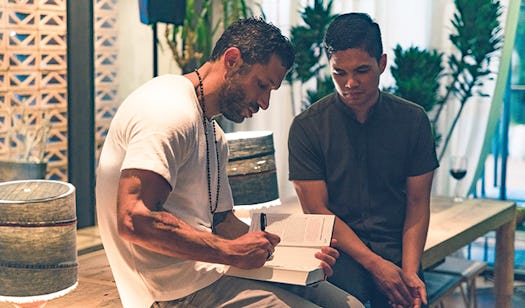
Let’s say a person follows the plan you lay out in the book, and for reasons that are maybe beyond his or her control, the day goes haywire. How does someone get back on track?
We have this idea that when you fall off the wagon, you might as well stay off and throw all caution to the wind. If you have a shitty meal, you might as well have a shitty-ass dessert too, right? Pile it on.
But the truth is, every decision you make is cumulative. Throwing away half of a chocolate cake is a win—even if you’ve already eaten the first half [laughs]. We tend to have a defeatist mentality when we screw up, but if you turn around and immediately start following your plan again, you’ll be fine. If you’re drinking, you don’t have to keep going until you’re obliterated. It’s a win if you go home right afterward and drink water. At any point, you can turn something negative into a positive. Don’t think you always have to start next week fresh. Life isn’t binary—you’re not ever only “on” or “off.” The decisions you make add up over time to determine an outcome.
If somebody does screw up and eats a bunch of carbs, for example, do you have any tricks for getting energy and focus back?
I have something called the “Cheater Shooter” in the book. It’s apple cider vinegar and Ceylon cinnamon, and it can help you rebound. You can also just go with the fatigue and take a short nap, and then you may wake up feeling fresh. Or you can go for a walk, which can lower blood sugar, and, of course, you can work out.
Some people are going to look at this book and say, “I’m not Aubrey. I don’t have his talents or his money, so I can’t accomplish the same things.” How can people stop making excuses and believe that they can do big things too?
The book makes the point that the world has a number of free doctors and you should use them. The free doctors are sunlight, water, sex, sleep, movement, and breath. All that shit is free! You don’t need any money, or talent, to start using them to feel better and do better.
And people need to remember: you’re not trying to be me. You’re just trying to be the best version of yourself. If you apply those doctors, you’ll get there. The other part of the equation is believing that you’re the type of person who deserves to change and be better.
A lot of people find that they can’t be happy because they can’t stop comparing themselves to others and what they have or have done. What’s your advice for breaking the pattern of comparative thinking?
It comes down to this: you can be a second-rate version of somebody else or the very best version of yourself. Those are the only two choices that you have. You have to realize that nobody can be you better than you can, and that’s fucking rad! Nobody can top that. But if you’re chasing after somebody else’s shit, they’re always going to beat you—if they’re being themselves.
You know, it’s easy to dismiss the things that you’re not insecure about. If you know a guy who’s a master backgammon player, but you don’t play backgammon, you don’t care that he’s better than you. But the things that you are insecure about are the ones that bother you about other people. If it’s money, then you want to compare to other people who have more money. The only comparisons that really are hard are the ones driven by your own insecurity, which means that to fix that comparison pain you have to fix your own insecurities. That’s a deep process of accepting yourself for who you really are. It takes a lot of work and forgiveness and self-love, and you have to understand that it’s not about bringing that weak area up to match somebody else—it’s to feel better about yourself. But, ultimately, we shouldn’t feel insecure because we’re awesome at being us and we should work on being
more awesome at that.
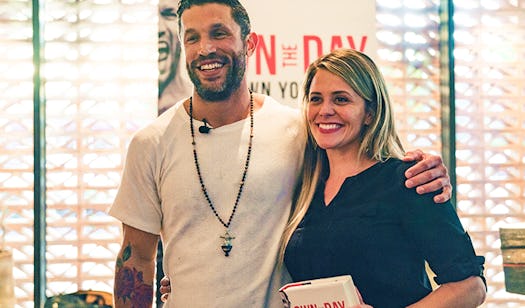
You’re a student of philosophy. What is your philosophy of life these days?
Know that it’s all going to work out. Use hindsight as foresight. When we look back on our lives, we’re pretty much grateful for everything, aren’t we? Even the bad stuff, because if that didn’t happen, we never would have learned about ourselves. People talk all the time about some horrible thing that happened to them and they say “but in the end, it was the best thing that ever happened to me.”
When we look forward at the future, however, we’re scared of everything. So we have to make that switch to trust that everything will be alright, no matter what happens along the way.
Let’s talks about the craft of writing for a moment. Most people recognize that writing better can help their business, or help them express their creativity, but they have no faith in their ability to do it. Having written this book now, do you have any tips for being a better writer?
Read and write. I became a dramatically better writer by writing this book. Not only did I write it but I read and rewrote it, and read and rewrote it, again and again. Now when I look back at the first version I think to myself, “Did a child write this?” Reading allows you to understand what good writing is and writing lets you practice that craft.
You’ve said that the book became something different in the end than what you set out to write. What did it become?
I think books take on a life of their own. You have an idea for a book, but through the process of writing it, you will find out what the book wants to be. A book starts to have a soul, a spirit. Ultimately, you’re not the owner of that—you’re a servant of that. Once that’s established, you have to start listening to what the book wants you to write.
The soul of Own The Day is humility. Admitting that we all fuck it up. That we’re all the same. We all have the same struggles and challenges, and there’s a solution to all of it and a path out for everyone. When I started writing, it was just information and action. The soul of the book started to take shape when I added the sections about getting owned. That was the acknowledgment that we’ve all gotten owned by life. We’ve all gotten our ass kicked. And if I could find a way to turn it around, anyone else could too.
Pick up Own The Day, Own Your Life HERE.
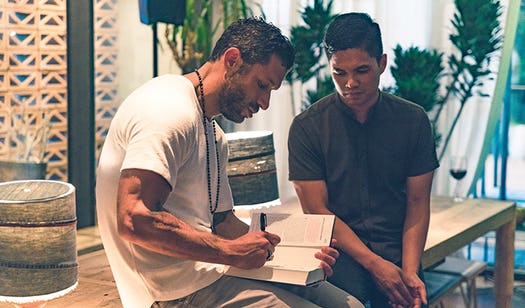
)
